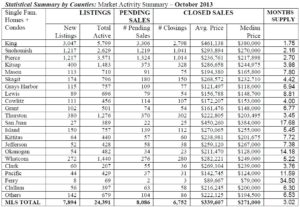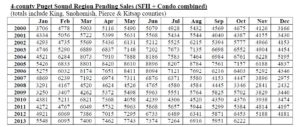Congratulations! You have found the best real estate classes in Washington State. Tellus Real Estate Solutions has become a satellite school partner with Rockwell Institute. These online real estate classes are perfect for:
- Prospective real estate brokers interested in getting their real estate license
- New agents that need Continuing Education course in order to renew their existing license
- Experienced agents looking to obtain their managing broker’s license
- Real estate investors or anyone else interested in learning more about the real estate industry
Click here to save money on classes
Why take classes online?
The advantage to this kind of training is that you can control the schedule and pace at which you will take the course. These courses are ideal for students who live outside the Seattle metro area, work full-time, or have demanding lifestyles.
Why sign up through Tellus Real Estate?
Our partnership with Rockwell Institute means you get a significant savings over the standard prices for Rockwell classes. In most cases this is a 10% or more discount. Additionally, along with great support from Rockwell, you can email our office if you have questions and need help understanding the materials.
About our Rockwell Satellite School
Tellus Real Estate Solutions’ satellite real estate school provides pre-licensing, managing broker licensing, and continuing education courses. These courses are provided at a discount from the standard Rockwell Institute price. You can also register for classes online or by calling Rockwell Institute directly at 800-954-5150 and letting them know you are registering as a Tellus Real Estate Solutions student. See the class descriptions for information about each class.
Click this link for a demo of our online classes.
Course approvals Rockwell holds all course approvals with the State of Washington. All our real estate courses are offered in association with Rockwell Institute, the school of record. Rockwell Institute is the course sponsor for all courses.
How do I get my Washington State real estate license?
To qualify for a broker’s license in Washington State, you must be 18 years old and have a high school diploma (or equivalent). You must also successfully complete 90 hours of approved real estate education within 2 years before you apply for the exam. The courses must include a 60-hour course in Real Estate Fundamentals and a 30-hour course in Real Estate Practices. You must also pass the broker’s exam. Review the Department of Licensing website for more details.

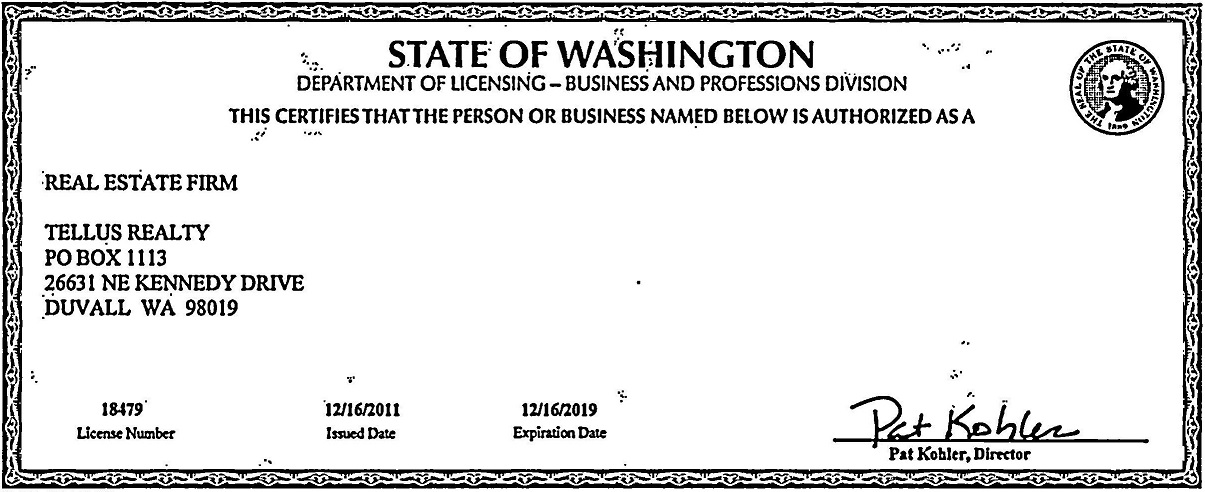
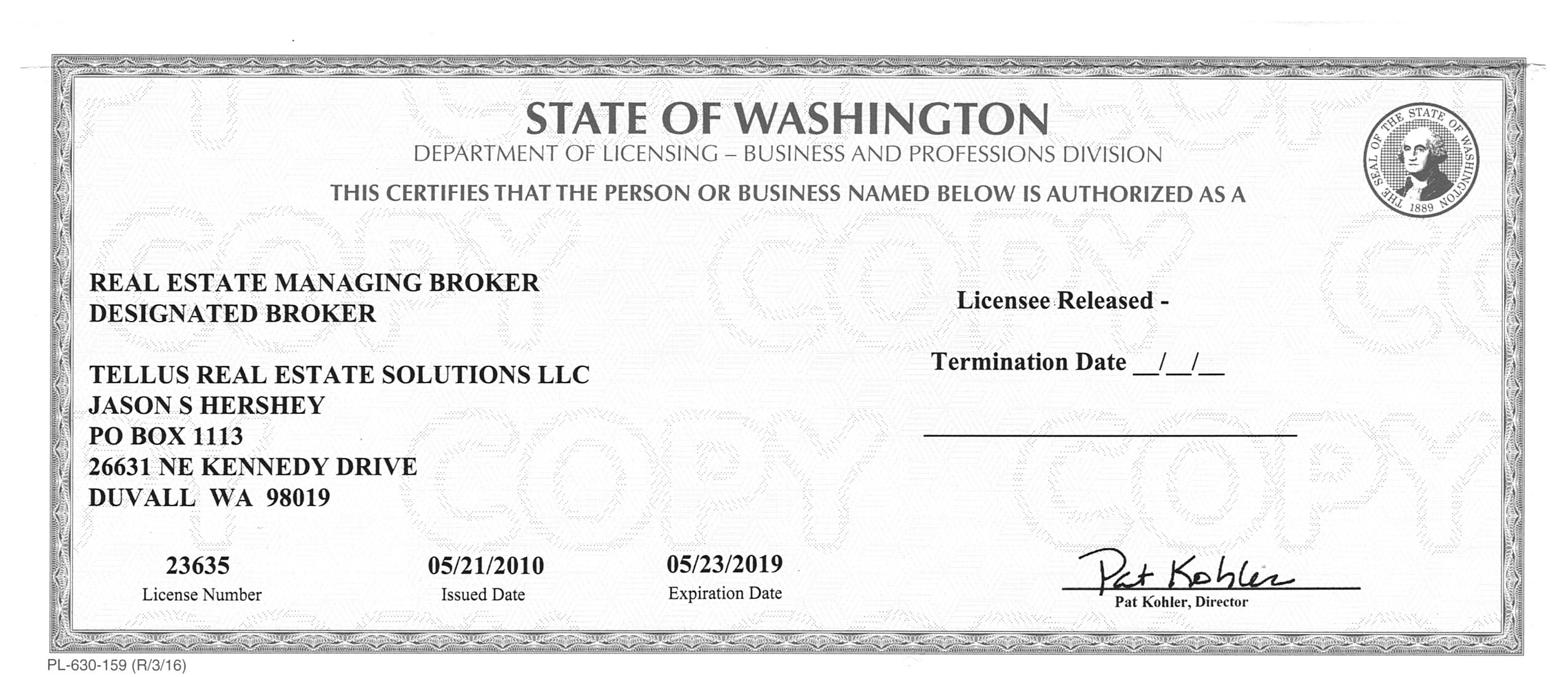
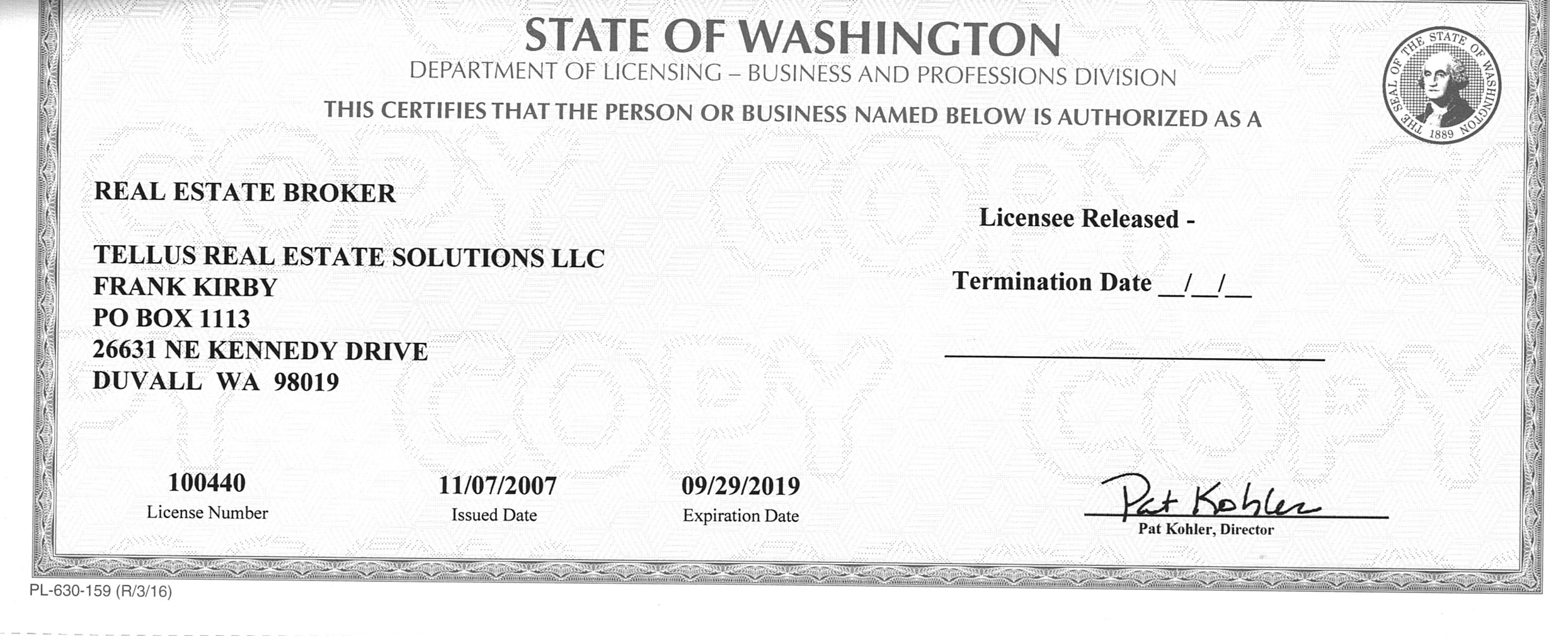
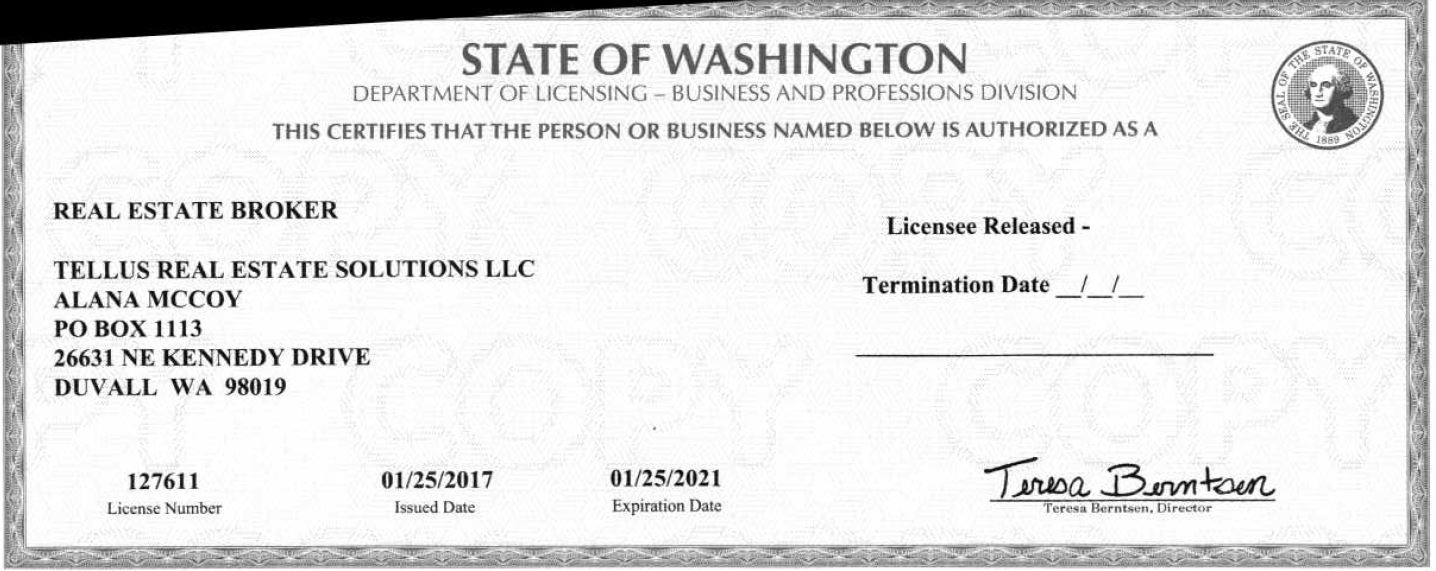

 On the surface, this seems easy and the obvious scenario is one where a person selling a house ‘for sale by owner’ (FSBO) finds a buyer. No real estate agent is involved, so there is no agency relationship. But, we’ve also seen cases where a FSBO owner or buyer asks a real estate agent to handle paperwork for a fee, without creating an agency relationship. The challenge here is that the agent will likely, at some point in the transaction, offer advice to either the seller or buyer, thereby creating an agency relationship without meaning to do so. As the owner of a real estate brokerage, I see this as a recipe for law suits, and since ultimately it is my responsibility, I don’t want my brokers doing this. If a FSBO buyer and seller needs help with paperwork, they can contact an escrow company or an attorney to guide them through the process.
On the surface, this seems easy and the obvious scenario is one where a person selling a house ‘for sale by owner’ (FSBO) finds a buyer. No real estate agent is involved, so there is no agency relationship. But, we’ve also seen cases where a FSBO owner or buyer asks a real estate agent to handle paperwork for a fee, without creating an agency relationship. The challenge here is that the agent will likely, at some point in the transaction, offer advice to either the seller or buyer, thereby creating an agency relationship without meaning to do so. As the owner of a real estate brokerage, I see this as a recipe for law suits, and since ultimately it is my responsibility, I don’t want my brokers doing this. If a FSBO buyer and seller needs help with paperwork, they can contact an escrow company or an attorney to guide them through the process.






